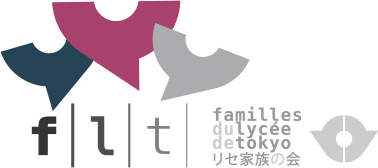Scholarships and « social fairness » [翻訳準備中] [日本語版]
翻訳準備中。この間に英語版を添付しました。
Scholarships and school fees context
During last administration board meeting in February, we heard that there would be no school fees hike. But this was before the ‘PEC’ scheme was cancelled (PEC stands for Prise En Charge, and refers to the scholarship system that waives school fees for French pupils during their last 3 years of secondary school) suddenly this summer by the new government. We knew that the PEC scheme was going to be cancelled after the election, but nobody thought that it would be cancelled before the start of the new school year.
When Laurent Fabius, France’s minister of Foreign Affairs, came to Tokyo on a state visit, we were able to meet him and hand him a letter detailing why, at the very least, the government should transfer the entire PEC budget into the regular scholarship system. It is our understanding from our contacts with French Senators that our message has gotten across. The delegate minister for French Nationals Abroad – Helene Conway-Mouret – wrote to us to explain that the PEC system was cancelled out of social fairness and promised that a new scholarship system would be ready before the next school year. The AF-fcpe has always, and will always lobby French officials during their visits to Japan.
Taking local criteria into account
Every country has local characteristics. The social fairness concept is supposed to take this into account by its own definition. The differences between each country are already partly accounted for when evaluating scholarship attributions. This is why a specific rebate is applied to the family’s available income, based on the country and family structure. However, the decision of granting the scholarship is eventually based on the remaining amount of available income, obtained by applying a fixed percentage used almost worldwide. This percentage is 25% for countries for the northern hemisphere, except for the USA where it is set to 35%.
This is exactly where the need to take local criteria into account is most important. In Japan, despite an existing retirement scheme, people are forced to make huge savings to compensate for the meager pensions. Suppressing the PEC system also prevents parents from making important saving before their children enroll into university, where parents will have to pay for both studies and living expenses.
It is very important that the French government, and more importantly the representatives, acknowledge that granting scholarships based on a fixed percentage – which does not vary according to income, number of persons working in the household, or number of children registered to the school – is putting an overly heavy burden on part of the households that need those scholarships to afford French education for their children.












